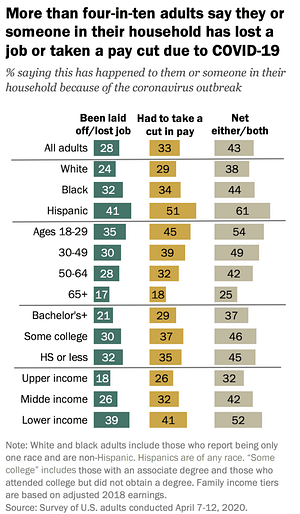New research from William Emmons, Lead Economist in Supervision at the Federal Reserve Bank of St. Louis, found that unemployment during the 2020 recession was felt disproportionately by younger Americans, particularly those under 35. This is not an anomaly. During the 2008 recession, workers under 35 also felt the brunt of layoffs and hiring freezes. And more than temporary inconveniences, these early career episodes of unemployment have long-term effects on both employment and earning potential.
Severe economic downturns, like global pandemics or a devastating weather events, are rare and difficult to predict. But by taking measures to prepare for them well in advance, we can minimize the impact and protect earnings and economic growth. To do that, we need to know what is working, and, just as importantly, what isn’t. That means setting clear and measurable goals, aligning education and training programs with emerging employer needs, and conducting regular program evaluations to ensure that curricula are keeping track with economic demands.
As our president & CEO, Margaret Spellings, has said before, “You can’t solve a problem that you don’t diagnose correctly, fairly, accurately, and comparably.” To bolster Texas’ workforce against future downturns, we need to understand what skills are in demand and which programs are delivering improved employment and wage outcomes.

